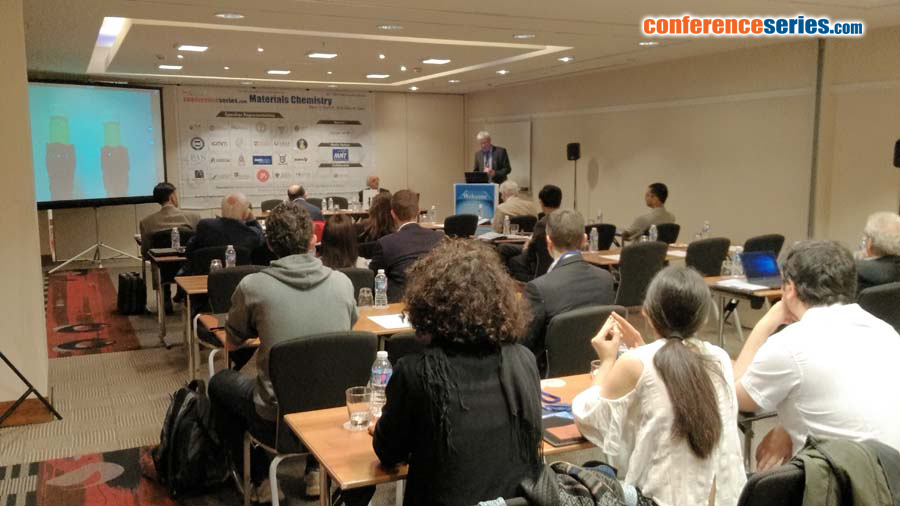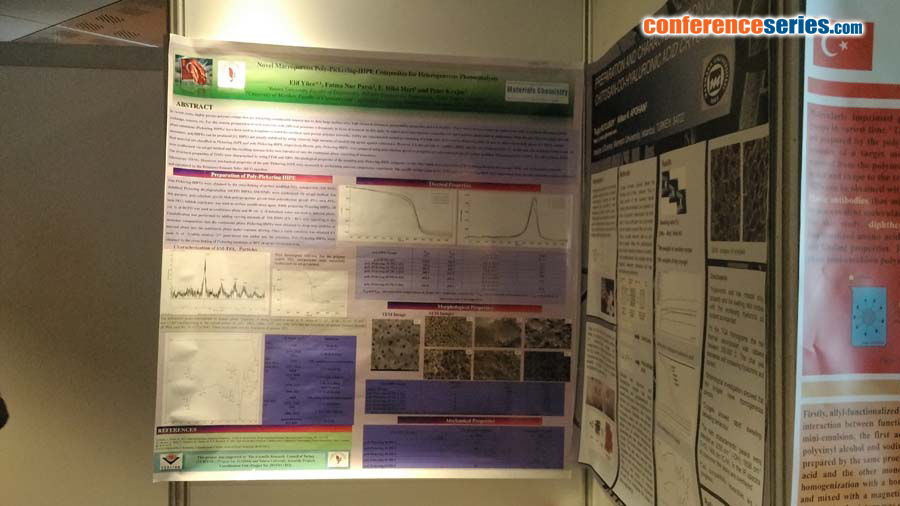
Elif Yüce
Yalova University, Turkey
Title: Novel macroporous poly-pickering-HIPE composites for heterogeneous photocatalysis
Biography
Biography: Elif Yüce
Abstract
In recent years, highly porous polymer composites are attracting considerable interest due to their large surface area, high chemical resistance, permeability properties, and low densities. These materials have numerous applications such as catalysis, filtration, energy exchange, sensors, etc. For this reason, preparation of such materials with different processes is frequently in focus of research. In this study we report novel macroporous composites for heterogeneous photocatalysis applications. With this aim, Pickering-high internal phase emulsions (Pickering-HIPEs) have been used as templates to build hierarchical open porous polymer networks. HIPEs are concentrated emulsions consisting of a high ratio of internal or dispersed phase. In case of, either one or both phases of a HIPE contain monomers, polyHIPEs can be produced. HIPEs are usually stabilised by using relatively high amounts of emulsifying agents against coalescence. However, it is also possible to stabilise a HIPE with the use of nanoparticles. In this case, the resulting emulsion and the final material are classified as Pickering-HIPE and poly-Pickering-HIPE, respectively. Herein, poly-Pickering-HIPEs were prepared using poly(ethylene glycol-co-propylene glycol-co-ethylene glycol) surface modified TiO2 nanoparticles (TiNPs). For this purpose, TiNPs were synthesised via sol-gel method and the resulting nanoparticles were introduced into the continuous phase consisting of monomers. The structural properties of TiNPs were characterised by using FTIR and XRD. Morphological properties of the resulting poly-Pickering-HIPE composite, on the other hand, were characterized by Scanning Electron Microscopy (SEM) and Transmission Electron Microscopy (TEM). Moreover, mechanical properties of the poly-Pickering-HIPE were measured by performing uniaxial compression experiment. The specific surface areas of the TiNPs and poly-Pickering-HIPE were determined from the adsorption/desorption isotherms and calculated by the Brunauer-Emmett-Teller (BET) equation.




